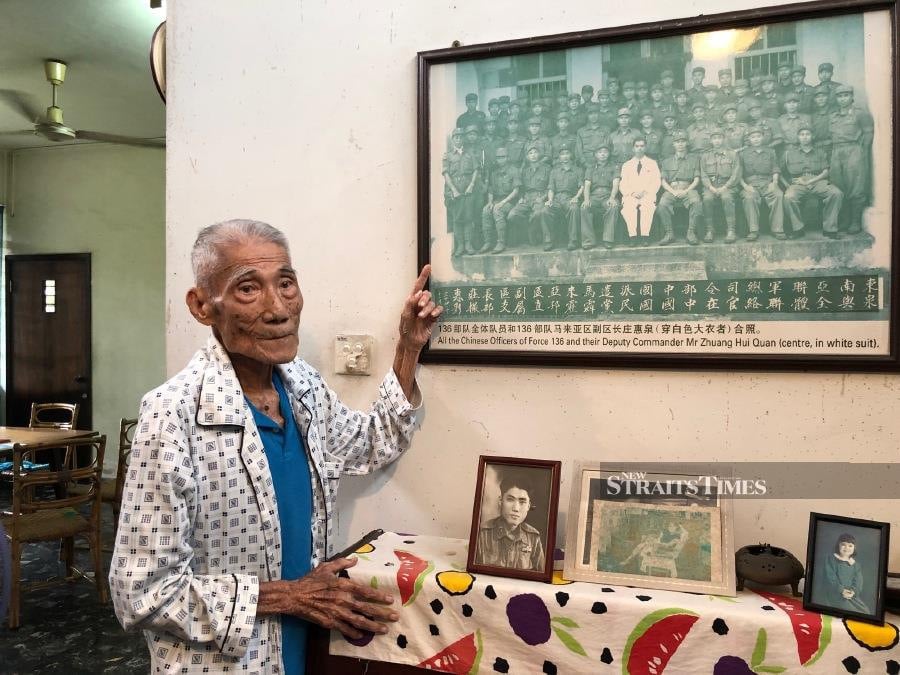"Action station... No. 1, go... No. 2, go!" The sergeant-major was barking orders in his attempt to be heard above the turbulence and engine noise of the B-24 bomber.
His expression grim, Lieutenant Chin Phui Kong had no time to think. There were orders to follow and he knew he needed to step up to the task. After all, this was what he'd been trained for, for nearly a whole year.
Despite the knots in his stomach and the throbbing of his heart, he steered himself to concentrate on the task ahead. Certainly, it's an onerous one for they have to drop behind enemy lines during the Japanese Occupation in Malaya.
EARLY YEARS
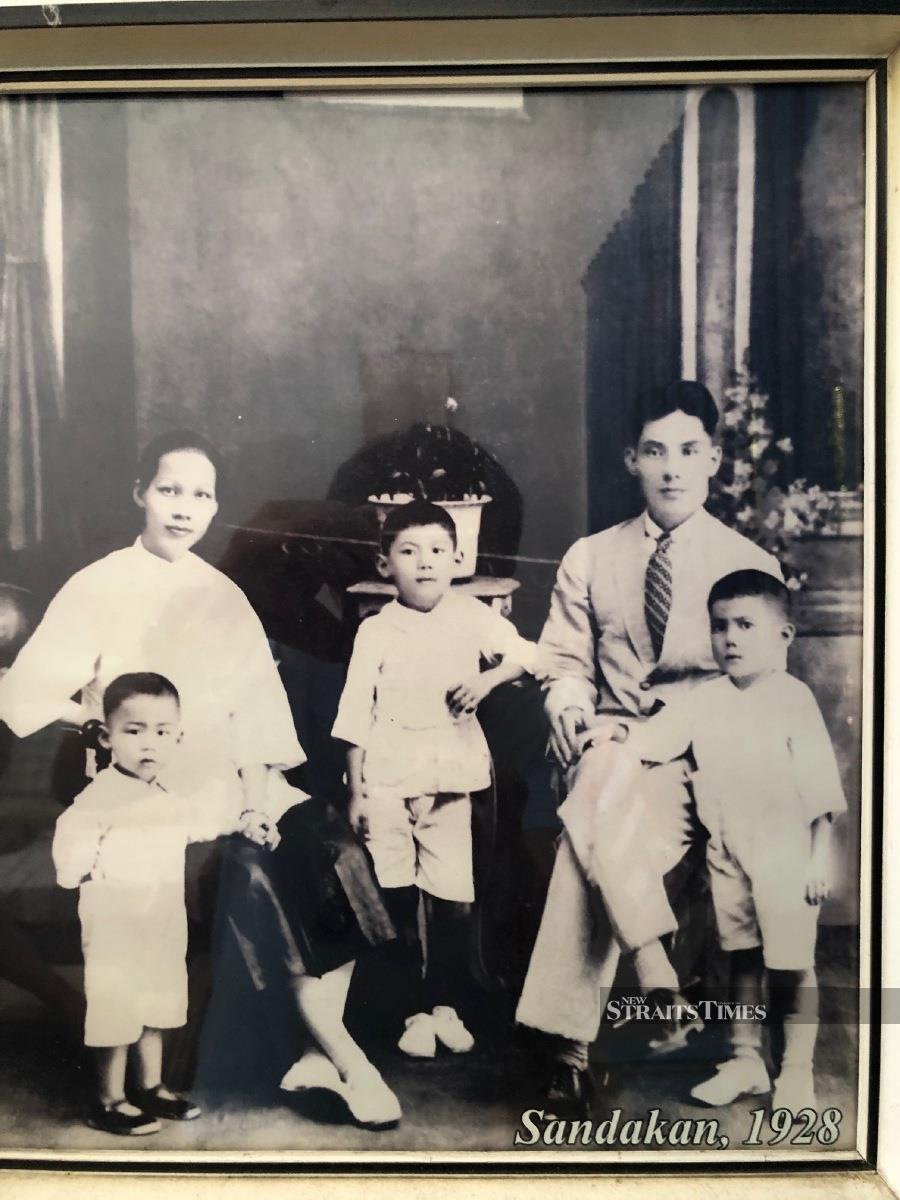
Chin came from Sandakan, the old capital of Sabah. During his idyllic school days at Chung Hwa Middle School, he spent a lot of his time playing football and was a well-respected goalkeeper. The skills he learnt on the football field would prove to come in handy one day during the war.
In the pre-war days, there were limited educational opportunities in Sabah. So, his parents sent him to study in the International School for Overseas Chinese in Guangzhou, China. Both his school fees and hostel accommodation were covered.
It was while he was studying in China that war broke out in the north. Although he heard of the "rape" of Nanking and of other cities in the late 1930s, he had yet to witness any atrocities by the Japanese. It was only when the Japanese army attacked Guangzhou that he saw the cruelties and brutalities firsthand.
Despite that, Chin didn't want to get involved in a conflict in a foreign land. All he wanted to do was complete his studies and return home as soon as possible.
However, it wasn't long before the Japanese also invaded Malaya and Sabah. His hometown was attacked and many were killed by the Japanese. His dream of returning to a peaceful Sabah was shattered.
JAPANESE ATTACK
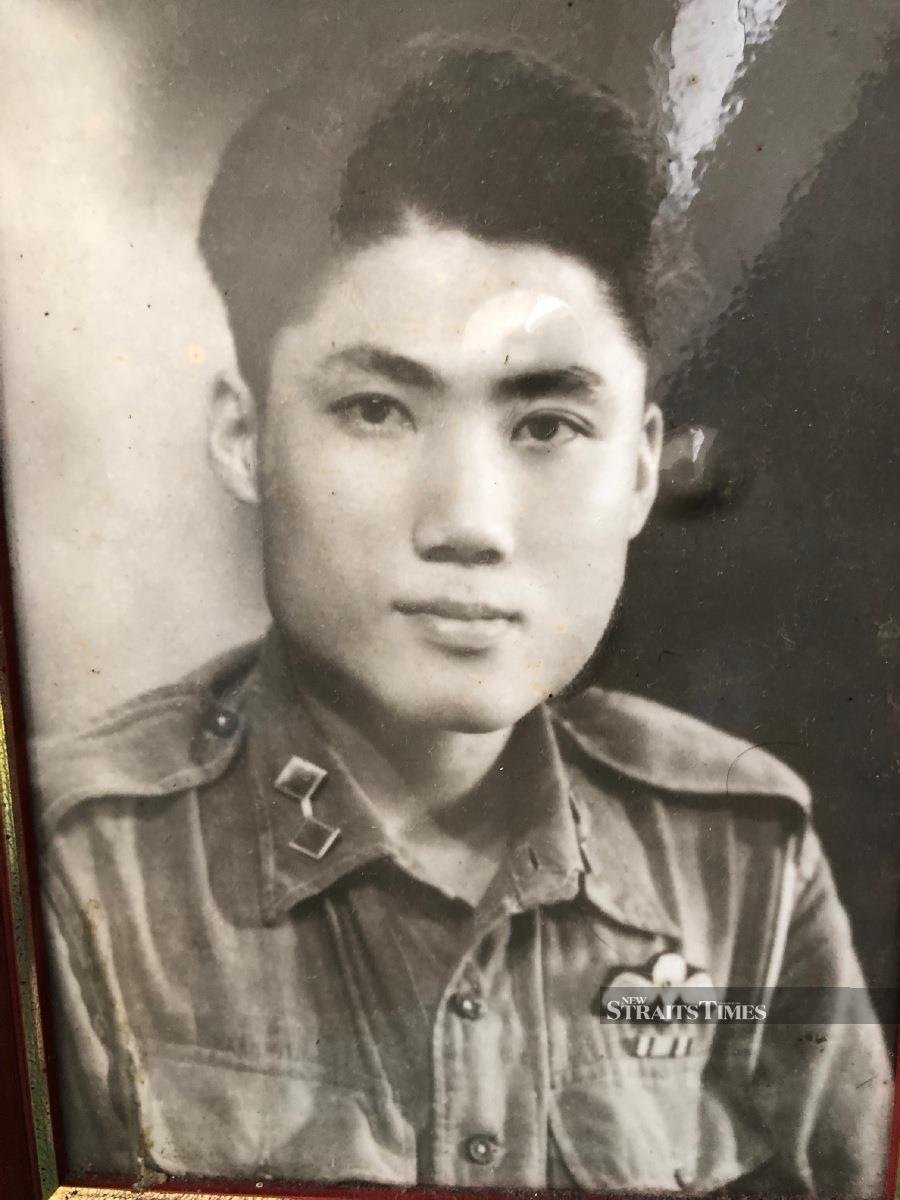
Sailing from Cam Ranh Bay in French Indochina (Vietnam today), the Japanese forces landed in Labuan on Jan 1, 1942. Despite a heavy British presence in North Borneo, there was little resistance against the Japanese war machine.
The capture of Sabah was the biggest New Year gift for Emperor Hirohito of Japan. Within a week, the British negotiated for a total surrender in Jesselton, the state capital.
Although the British didn't put up much fight against the Japanese, the local people did. In the Jesselton Uprising in October 1943, a few hundred local Chinese, together with the Kadazandusun, Suluk, Bajau and others, rose up and took over Jesselton. It was a very brave but short-lived revolt.
In his book One Crowded Moment of Glory, Professor Danny Wong of Universiti Malaya described the uprising in all its glorious and gory details. It depicted the uprising as a local multi-racial initiative and a definitive moment in Sabah's history.
RETRIBUTION AND BLOODSHED
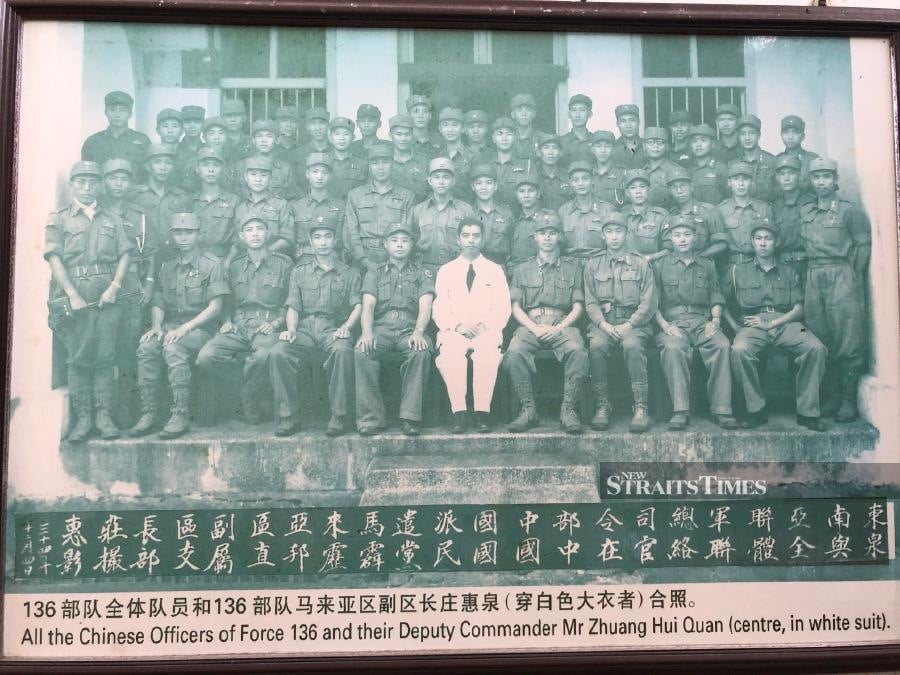
In its aftermath, the Japanese unleashed unspeakable violence on the local population — killing innocent people and bombing coastal villages. In my previous article, I described how Kempetai officers pursued the natives and inflicted horror on an innocent 5-year-old and other villagers living in the foothills of Mount Kinabalu.
Outraged by Japanese brutality and atrocities in Sabah, Chin volunteered to join Force 136, which was recruiting in China. Together with some of his Sabahan schoolmates, they joined the organisation in the wartime capital of Chongqing, China.
After a week, they boarded a Dakota plane that took them over the Himalayas to India. They subsequently underwent an intensive nine-month training, which prepared them for their roles as secret agents of Force 136. Their mission? To be dropped behind enemy lines in Malaya to train and fight the Japanese with the Malayan People's Anti-Japanese Army (MPAJA) guerillas.
THE DESCENT
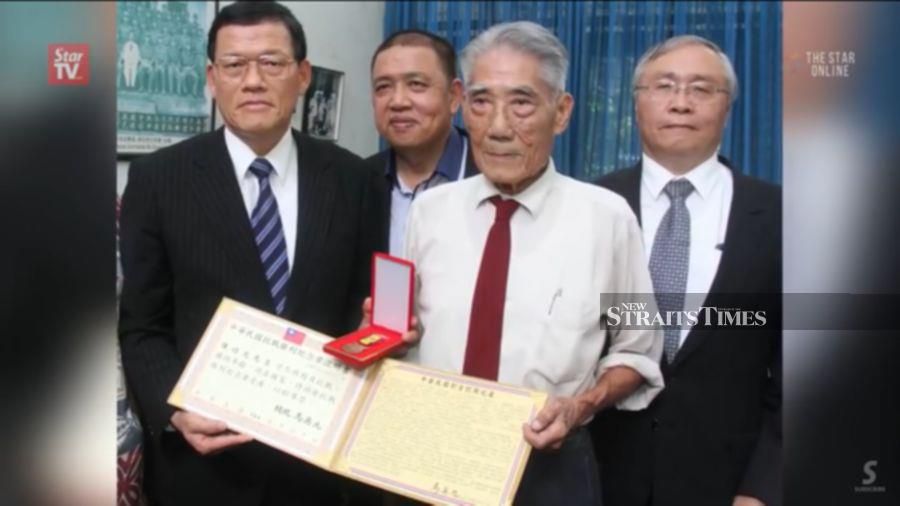
After what seemed like an interminable and monotonous journey, the newly commissioned Lieutenant Chin heard the test firing of his gunners. Suddenly, his sergeant-major shouted for everyone to prepare for the jump.
Their B-24 bomber had flown non-stop from Trincomalee airbase in Ceylon, for almost 12 hours. This was the moment they'd been waiting for. Without any hesitation, Chin stepped up for his jump.
Suddenly, he felt a rush of cool air travelling up his body. His ears caught the sound of the thunderous roar of the plane's engines. Before he knew it, he was already out, his parachute safely opened.
In order to minimise the danger of being spotted or killed by the Japanese, he and his team mates had to jump at only 800 feet. There wasn't any margin for safety or comfort at all. Their drop zone (DZ) was near Bidor in Perak of then occupied Malaya.
In my book If the Sky were to Fall, I described what my father saw while working in his farm at the foothills of Temoh town early one morning. Disturbed by the noise of a low-flying large airplane, he'd looked up at the sky. The next moment he saw some white parachutes opening above.
According to father, some of the parachutes had people hanging from them, while others appeared to carry big boxes. My research revealed that these boxes contained food rations, weapons, ammunition and even some rum. One of the people seen by my father on that morning was probably Chin himself.
During his descent, the strong wind blew Chin off course. Instead of the DZ, he landed on a big rubber tree. As he crashed among the branches, he could hear loud cracking sounds. He felt sharp pain all over his limbs. His hand, especially, was bleeding badly.
However, he was more worried about his safety than his bleeding. This was enemy territory. The Japanese would be coming after him very soon. Worried, he checked his Browning pistol and ammunition.
Fortunately, they were secure by his side. He knew that it would be needed any time in the forbidding and formidable jungle. Using his dagger, he briskly cut himself loose and climbed down the tree.
WARM WELCOME
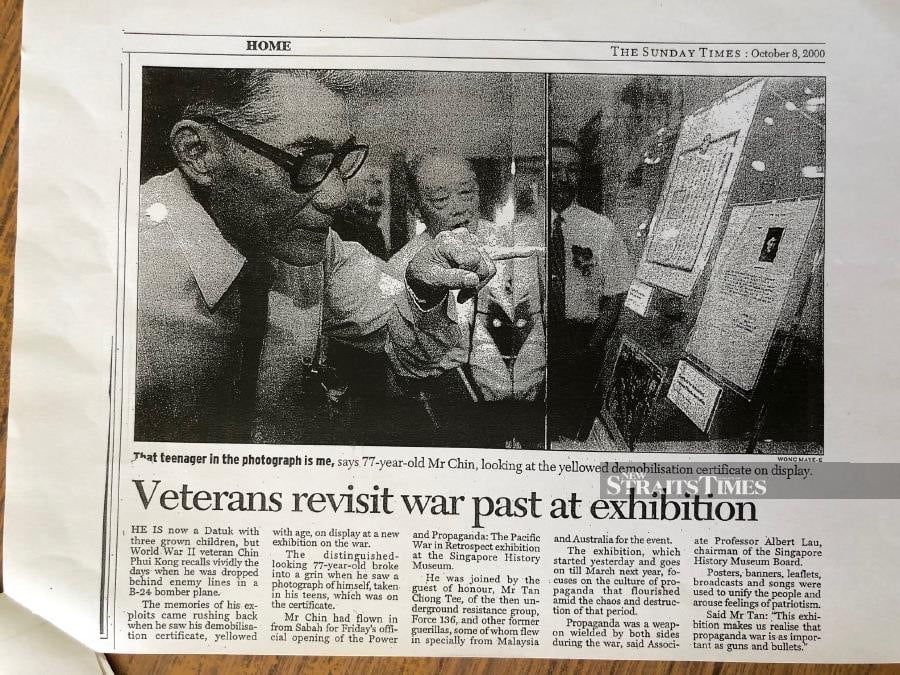
Before reaching the ground, someone was already waiting for him with a Sten gun on his hip. Fortunately, the man was a guerilla with the MPAJA and one of the bravest resistance fighters. Chin was indeed glad that the guerilla member got to him before the Japanese did.
After climbing through steep and rugged terrain, the guerilla brought Chin to his camp in Bidor Peak. He was glad to meet his commanding officer, Colonel John Davies.
Davies communicated with his Force 136 agents and the MPAJA guerillas in fluent Cantonese. He'd honed his Cantonese and Malay during his stint as the Ipoh police chief before the war.
Next to Davies was a short, slim and thoughtful-looking Chinese man. This was the notorious Chin Peng, then a commanding officer of the guerillas. Despite initial reservations, Chin found Chin Peng and his men to be friendly and helpful.
Davies and his Force 136 agents had been holed up at the Bidor Camp for almost a year. They had long run out of food and luck. Their communication equipment was damaged and they were out of touch with their base in India.
However, they didn't have to worry. The guerillas shared whatever little food they had with them and made them feel at ease throughout their entire stay. Chin learnt that many of them joined the MPAJA because their families had suffered terribly at the hands of the Japanese during the war.
As a demolition expert, Chin trained the guerillas on the use of explosives. They successfully carried out some dangerous missions together. This was when his safe and steady pair of "goalkeeper" hands came in useful.
Towards the end of the war, the British planned for a major invasion to recapture Malaya. Codenamed "Operation Zipper", the mission was to have a major British force land in Port Dickson, Negri Sembilan and Port Swettenham, Selangor.
The Force 136 agents were to train the MPAJA guerillas to aid in this battle. With the British coming from the sea and the MPAJA from the mountains, they were supposed to outflank the Japanese from both sides.
However, the atomic bombing of Hiroshima and Nagasaki in August 1945 brought an unexpected early end to the war.
LIFE AFTER THE WAR
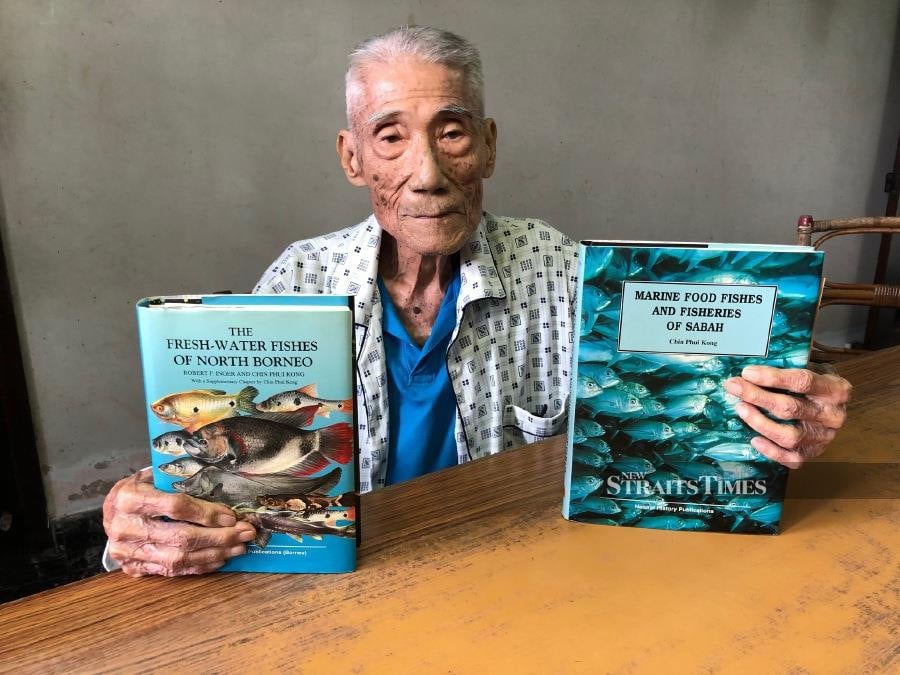
Following the end of the war and the disbanding of Force 136, Chin returned to China to continue his studies. He majored in marine biology and became an expert on tropical fishes.
His childhood days spent catching the beautiful fishes in Sabah's crystal-clear rivers had inspired his love for marine life. Upon graduation, he returned to serve in the Fisheries Department of Sabah, when Tun Datu Mustapha Datu Harun was the chief minister.
Through hard work and good leadership, he climbed the ranks to become the director of the Fisheries Department. Chin applied the same sense of diligence and responsibility to his job. As Sabah is blessed with a long coastline and rich marine biodiversity, he made it his responsibility to ensure that its rich fishing grounds were well protected.
He conducted frequent checks around the daily markets as well as surrounding seas. For his unwavering diligence and dedication in his work, Chin was awarded a datukship.
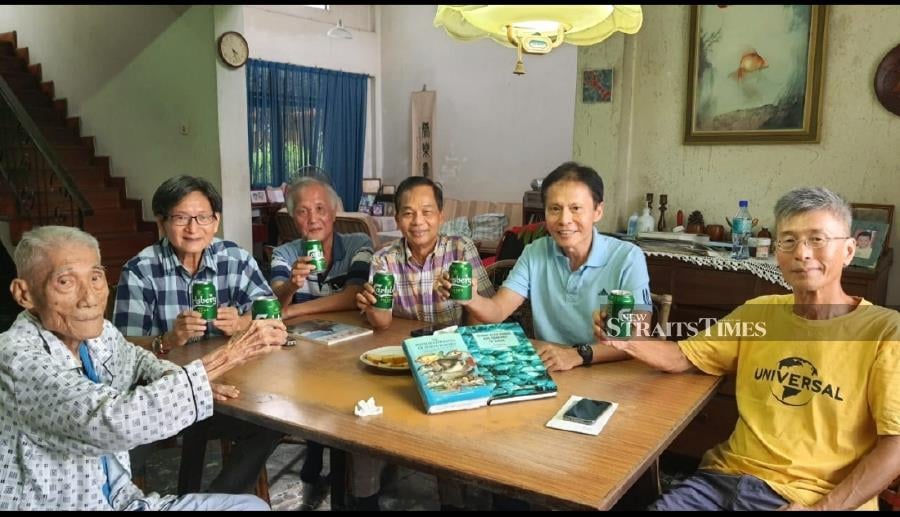
After retirement, Chin decided to pen two books about tropical fishes. Some fishes were even named after him and his loved ones. Given his authoritative knowledge on tropical fishes, his books soon became standard reference textbooks around the world.
Chin is now happily retired and, at 100 years old, continues to be in sound health. His secret motto? "A beer a day keeps the doctor away!"
Datuk Chin Phui Kong is the last and only surviving member of Force 136 still alive today. The writer wishes to acknowledge and thank the following people for making this interview possible: Datuk Ho Jia Lit, Ho Kin Wong and Richard Ho Pui Yen.
Gary Lit Ying Loong is a retired academic from Nanyang Technological University (NTU) Singapore. He's presently a visiting professor to some universities in Asia and Europe. Reach him at [email protected].


